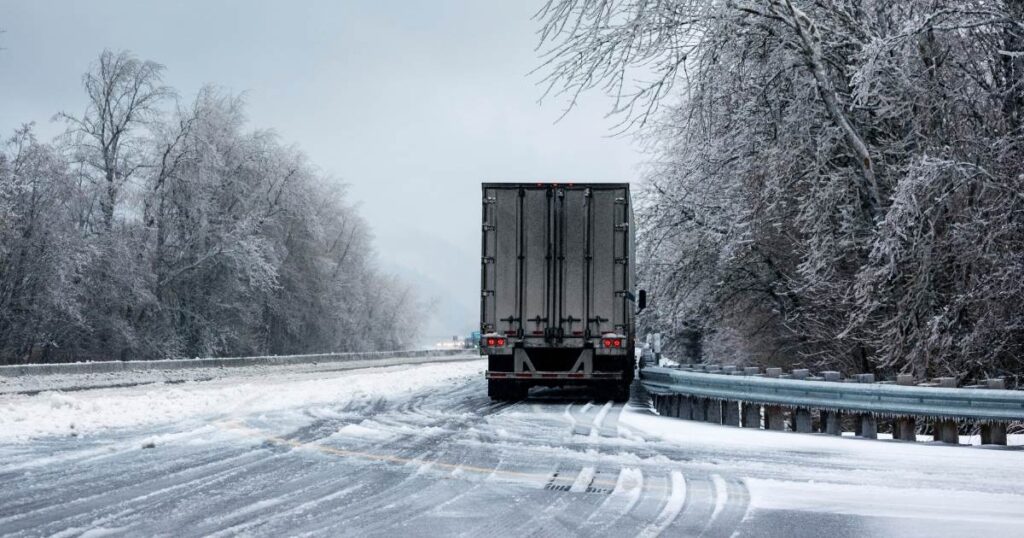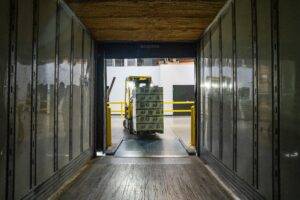Blizzards, freezing rain, and bone-chilling cold spells are just a few examples of winter weather conditions that may wreak havoc on the supply chain. Transportation delays, cargo damage, and unexpected power outages are just a few ways cold weather may disrupt supply chains. By anticipating the impact of winter weather on supply chains, businesses may avoid costly delays and quickly fulfill orders.
Now is the time for shippers, carriers, and 3PLs to prepare for the increased problems that winter will bring. Because it’s now autumn, we may assume that winter won’t be far behind. How ready is your supply chain for events that could cause major disruptions? There is still time to implement these preventative actions to help you plan for and face whatever challenges winter may bring, even if your Q4 strategy is already in place.
In this primer on winterizing supply chains, we’ll go over why it’s so crucial to preparing early and what kinds of impacts cold weather often has on logistics. We will also discuss the advantages of working with a reliable third-party logistics provider for all your transportation and logistical needs during the winter and offer advice on winterizing your supply chain.
Importance of Winter Grain Supply Planning
Businesses need to prepare before the arrival of winter to be ready for the shifts in customer behavior associated with colder weather. If you prepare your supply chain for the obstacles that winter may bring, your company will remain successful and will be able to weather any storm that may lie ahead.
The following is a list of the most important reasons why it is essential to get your supply chain ready for winter:
1. Prevent Increased Overhead Costs
Maintaining a consistent grain supply chain becomes more challenging as the season’s change and the weather gets colder. Businesses incur extra costs, such as hiring more workers, to help supply chain operations after disruptions. Enterprises should be ready for possible winter disruptions to reduce their overhead costs unexpectedly.
2. Maintain Product Safety
Ensuring you have enough storage space in your warehouses for the winter is essential to preparing your grain supply chain. When there are bottlenecks in the supply chain, items accumulate at specific hubs. It is vital to rent enough warehouse space to keep your goods secure and out of harm’s way until transportation routes are clear.
3. Satisfy the Needs of Your Customers
Problems with customer service and keeping customers due to unpreparedness for winter supply chain problems are possible. Prepare in advance for some of the potential issues during the winter season to meet client requests and expectations.
Preparing for potential supply chain disruptions during winter will help mitigate financial losses and boost customer satisfaction.
Different Ways To Deal With Grain Supply Network
1. Keep an Eye on the Forecast
Monitoring the progress of impending winter storms may force carriers to change their routes or cancel deliveries altogether is crucial. Because of this, transport that utilizes many modes is vital. Don’t just rely on trucking to get your goods from A to B; look into other options like rail, air, etc. Extreme winter weather can cause road closures, so it’s essential to plan how to get time-sensitive cargo out the door.
By keeping an eye on the weather, you can notify your clients and warehouse staff of the status of freight shipments and the reasons for any delays. Make sure your 3PL regularly updates you on the whereabouts of your shipments.
2. Take Advantage of RFID Monitoring
The use of radio frequency identification (RFID) tracking allows shippers to monitor their shipments as they travel from one location to another, giving them the most precise picture possible of their freight and the ETAs associated with it. This comes in especially handy during the colder months. Shippers can keep a close eye on their shipment and quickly respond to any emergencies that may arise from RFID tracking, which is especially helpful when implemented at the pallet level. This enables shippers to manage the situation better if severe weather forces carriers off the road or forces them to take a different route.
3. Cold Supply Chain Preparation
If you keep temperature-sensitive products or ship them, you need to take additional precautions to ensure that they are maintained at the appropriate temperatures. Severe weather causes a power outage at your facility or the breakdown of a vehicle while it is in transit. If an emergency occurs while freight is in transit, you will be able to respond quickly if you closely track shipments and communicate frequently with carriers. However, extra precautions should also be taken at temperature-controlled facilities, including testing backup generators and rechecking HVAC systems.
4. Prepare Your Carrier Supply
As the winter draws closer, it is apparent that capacity will decrease since more vehicles will be pulled off the road (coupled with an increase in holiday shipping). As a result of the scarcity of accessible resources, there is a possibility that the supply chain will see an increase in overall costs, a lengthening of transit times, and other types of interruptions. How can we most efficiently prepare ourselves for the possibility of a shortage of resources? Your goods will always be transported promptly and securely if you work with a 3PL that has established strong relationships with many carriers. This is true regardless of the season.
5. Rely on a 3PL
This winter, if you are faced with the difficult task of storing perishable items or transporting freight to multiple places, use a third-party logistics provider to serve as your guide. In addition to providing GPS tracking as an additional service, our staff specializes in improving the efficiency of your logistics plan so that you may get the most out of it. Your distribution network will have all it needs to make it through the harsh winter months.
Final Words
Avoid delays in grain transport due to cold weather. When it comes to transportation, trust I-Way to provide you with top-notch logistics services. You won’t have to worry about any problems with grain shipments because we have a team of professionals working on solutions to deal with severe weather. Tracking the shipment and viewing its current location is also possible. If you’re interested in a free estimate, contact I-Way Logistics.




